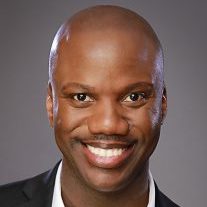The National Collegiate Athletic Association reports that 55 percent of all Black male athletes who enter colleges and universities in its Division I schools graduated from the same institution within six years. For all Black males at Division 1 schools, only 40 percent graduated within six schools. Therefore, there is the general impression that the Black athletes we see on the college football field or basketball court are doing better academically than their Black peers who do not compete in intercollegiate athletics.

Furthermore, in contrast to the data for all Division 1 schools, Black males at the Power 5 conferences were less likely to earn a degree within six years than their Black male peers who did compete in intercollegiate sports. At the Power 5 conferences, 55 percent of Black male student athletes graduated within six years compared to 60 percent of all Black men. Dr. Harper also found that at 40 percent of the Power 5 schools the graduation rate for Black male student athletes has declined from two years earlier.
“While leaders in the NCAA and Power Five conferences have important roles to play in reducing the exploitation of young Black men, no one is more responsible for systematically decreasing racial disproportionality in graduation rates than universities and their athletics departments,” Dr. Harper said. “These inequities are not going to correct themselves — campuses must enact multiple strategies and high levels of accountability.”
Before joining the faculty at the University of Southern California in 2017, Dr. Harper was director of the Center for the Study of Race and Equity at the University of Pennsylvania in Philadelphia. He is the author or editor of many books including Advancing Black Male Student Success From Preschool Through PhD (Stylus Publishing, 2015) and Scandals in College Sports: Legal, Ethical, and Policy Case Studies (Routledge, 2017).
Dr. Harper is a graduate of Albany State University in Georgia. He earned a master’s degree and a doctorate in higher education from Indiana University.


“Accountability” needs to go further down, holding mentors, coaches, teachers, and even parents accountable in leading these young Black male athelets on the path to athletic careers but dosen’t couple it with an academic foundation that they could fall back on in case their pro-athletic hopes don’t happen to panned out. Those individuals are to blame for failing these young men; the D-1 schools just exploits them.
My dissertation is on this very subject, and Davis, Jr. you bring up a very good point.
No subgroup of college attendees gets more academic support than those recruited for their athletic prowess. What seems to me always to be missing from these discussions is the question of whether the athletic recruits are college-ready in the first place. Are there any longitudinal studies of the post-collegiate circumstances of those who do not go on to get recruited into professional sports? There must be mountains of data somewhere but, it seems not to see the light of day. What are the professional outcomes for those who did graduate and did not pursue athletics-related careers? Inquiring minds want to know.
Frances Wood, you address some very valid research that is missing.
I agree with Mr. Davis junior’s comments. It is a travesty that can be avoided if parents, athletic staff, and support staff at large provide the leadership that it takes to remind black student athletes that they are students first and athletes second. Coaches may be under pressure for wins versus losses, but if they care about the academic welfare of their charges, beyond student eligibility, they will go the extra mile and have real conversations with their students. Making sure they understand that only 3 percent or less of them will go on to be professional athletes and that having their degree in hand is what is most important.
There may be other factors that contribute to the percentage of of Black male student athletes who do not graduate from college within a six year period. Politics, or favoritism, may well be the number one contributing factor as it relates to Black student athelete’s lack of academic success. It has been found, on a number of occasions that Black atheletes drop out of colleges and universities, because they are not getting the playing time that a player with inferior skills than theirs is getting. This maybe an area of scholarly study that should be explored.
Dr. R.W Stewart-
Very good point. But, we also can’t negate the reality of black males matriculting as college athletes unprepared for college.